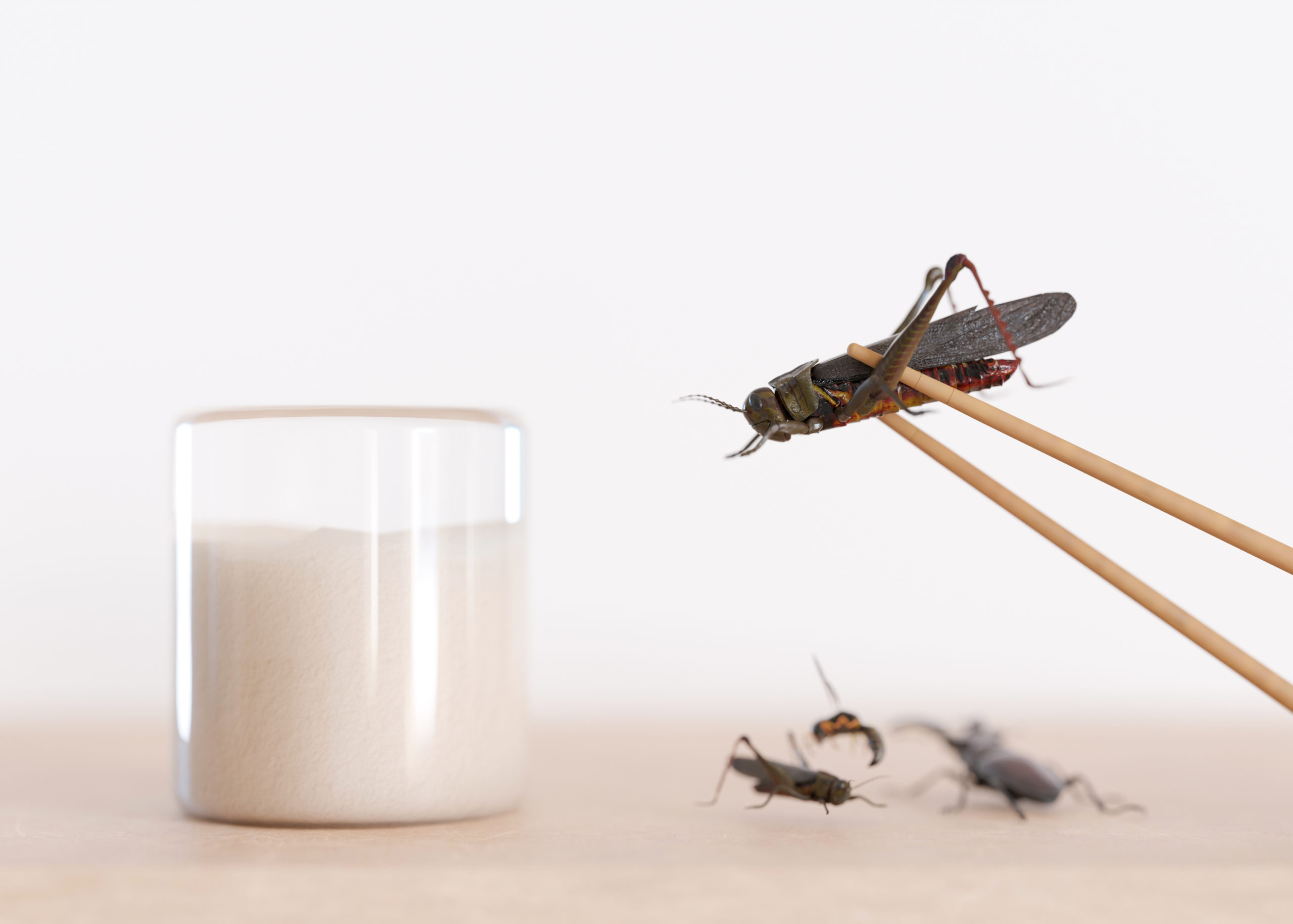Original article (in Croatian) was published on 19/01/2023
The cricket flour has been approved to be placed on the market, but it is not an obligation for EU citizens to buy or consume it.
“Asceticism is the renunciation of all bodily pleasures to achieve a spiritual state of enlightenment. And it seems to me that Mrs Ursula von der Leyen has discovered asceticism, but beware, for the citizens of Europe. For myself, I’m not sure. How else to interpret her decree that she signed, and says that it is binding from January 3, 2023, when it is approved to put on the market the powder of Acheta domesticus, or, if you like, the insect. So, in the year 2023, when technology has advanced so much, when science has gone so far, when we can have top quality and healthy food, the head of the European Commission sends us to the time of John the Baptist when she says that the citizens of Europe, and so should we Croatian men and women, citizens of the Republic of Croatia, eat insects”, said Most MP Marin Miletic during the presentation of the party’s position in the Croatian Parliament.
Some Croatian web portals (Agroklub) also published the news about the approval of placing on the market flour made from crickets (EC uses the term house crickets). It is not flour from “insects”, as the representative of Most, Marin Miletic, states, but flour from house crickets, just one of the types of insects of which there are between 2.6 and 7.8 million species in the world.
However, although the placing on the market of the mentioned product has indeed been approved, it is not an obligation to buy or consume such flour for citizens of the European Union (European Commission).
Crackers, breadsticks, pasta…
As of January 3, 2023, Commission Implementing Regulation (EU) 2023/5 was published in the Official Journal of the European Commission on the approval of the placing on the market of partially defatted Acheta domesticus (house cricket) powder as a novel food and on the amendment of Implementing Regulation (EU) 2017/2470.
Cricket One Co. Ltd. submitted on July 24, 2019, a request to approve the above-mentioned product for “use in multi-grain bread and pastries, crackers and grissini, cereal bars, dry premixes for bakery products, biscuits, dry products based on filled and unfilled pasta, sauces, processed potato products, dishes based on legumes and vegetables, pizzas, dishes based on pasta, whey powder, meat analogues, soups and soup concentrates or soup powders, cornmeal snacks, beer-like drinks, chocolate desserts, nut fruits and oilseeds, snacks other than chips and meat products, intended for the general population”.
As stated in the Regulation, placing the specified product on the market was approved only for the specified company and for a period of five years, from January 24, 2023, “unless the future applicant obtains approval for this new food without reference to protected scientific data following Article 3 or with the consent of Cricket One Co Ltd”
Food containing partially defatted Acheta domesticus powder will be labelled in an “appropriate manner following Article 9 of Regulation (EU) 2015/2283”, the implementing regulation also states. Novel food, which includes insects, can only be approved if it does not pose a risk to human health, states the website of the EC.
Colleagues from the Romanian fact-checking web portal Veridica wrote about this type of disinformation that can be connected to the narrative about the “food reset”, given that similar narratives were spreading in that country as well.
Legal frame
In the expert review paper Risks of consuming cricket flour by Frana Rakic, Tomislav Mikus, Lidija Kozacinski and Zeljka Cvrtila, it is stated that on the territory of the European Union (EU) the amendment of the Regulation on Novel Food (2015/2283) created “the only legal document which directly mentions insects and insect products as food”. However, as the authors write, the aforementioned regulation “only lays the foundation for the application of a certain type of insect to the list of permitted foods”.
One of the criteria for the food to be considered novel food is the fact that it was not used for human consumption “to a significant extent within the Union before the date of entry into force of that Regulation, i.e. May 15, 1997”.
With insects already making up a significant portion of the diet in Asia, Oceania, Africa and South America, the authors of the article state that “the use of insects and insect-based products as a food source and food for animals has the potential to have significant environmental, economic and food availability benefits”. Currently, more than 2,111 species of arthropods are eaten in the world, mostly beetles (often larvae), caterpillars, wasps, bees and ants, crickets, grasshoppers, midges, termites, dragonflies and flies. In Ecuador, for example, insects have been part of the diet for centuries (Unbias the news), and it is estimated that insects are part of the traditional diet of at least two billion people (FAO).
As reported by Veridica, in a scientific opinion published in 2015, the European Food Safety Agency (EFSA) claims that the use of insects as a source of food and animal feed has environmental and economic benefits and does not pose a threat to food safety.
Insects are a source of vitamins, minerals and proteins of animal origin; their tissue is extremely rich in amino acids and proteins, so insects can contain between 15 and 81 percent protein (Potential of insects as a source of animal proteins). In addition, they need less food to gain weight and can be grown efficiently and relatively easily.
Good production practice envisages closed cultivation of crickets; the risk is a high total number of aerobic bacteria, the survival of bacteria that form spores after heat treatment, allergies to insects and their products and bioaccumulation of heavy metals (e.g. cadmium), while other dangers are parasites, fungi, viruses, prions, antimicrobial resistance and toxins classified in the low-risk category (Risks of consuming cricket flour).



